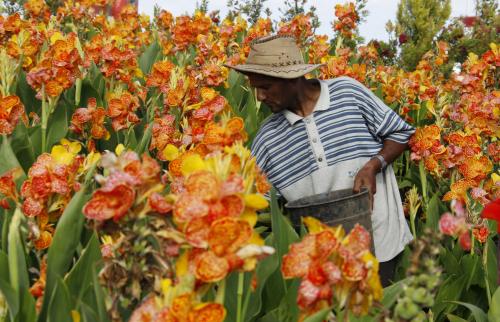Internal displacement has come to the fore in recent years as one of the most pressing human rights issues facing the international community. An estimated 20-25 million persons worldwide are internally displaced as a result of armed conflict and systematic violations of human rights. While the phenomenon has rightly been the subject of an ever increasing volume of literature, the focus tends to be on the immediate needs and rights of the internally displaced to physical protection and life-sustaining assistance. Less attention has been paid to other, perhaps less obvious needs and rights to which the internally displaced are entitled and which, depending on the circumstances, may be equally as important to the physical and mental well-being of the displaced. Among these is the right to vote and participate in governmental and public affairs—a right which citizens should not lose upon becoming internally displaced. Yet, as the Representative of the Secretary-General on Internally Displaced Persons, Dr. Francis M. Deng, has observed, “[a]midst the many deprivations they face, internally displaced persons are often stripped of the opportunity to participate in government on a local and national basis.” Denial of this right has particular significance for the internally displaced as “the ability to participate in public and governmental affairs can enable internally displaced persons to influence and possibly ameliorate their own situation of displacement.” Political participation by the internally displaced may be important also to ensure the legitimacy of both the elections and the government formed as a result, as well as the long-term stability of the country concerned.
The purpose of this paper is to examine political participation by internally displaced persons with specific reference to their right to vote in certain participating states of the Organisation for Security and Cooperation in Europe (OSCE). The geographical limitation reflects both the dearth of information on the issue in general and, conversely, the increasing role of OSCE and its Office for Democratic Institutions and Human Rights (ODIHR) in election monitoring and reporting. This limitation notwithstanding, the paper highlights a number of issues which may be instructive in regard to other displacement-affected states, either in the OSCE region or globally. With reference to elections held since 1995 in Bosnia and Herzegovina, Croatia, Georgia and the Russian Federation, the paper identifies various obstacles experienced by the internally displaced vis-à-vis the full and free exercise of their right to political participation. While some of these may appear to stem from practical or logistical problems such as physical access to voting procedures and delays in issuing necessary documentation, absent efforts to address them they may also give cause to suspect bad faith on the part of the authorities. Other obstacles may reflect deliberate policy choices by local or national authorities, which may even be enshrined in national legislation. Impediments such as these underline the importance of implementing international standards on political participation in regard to the internally displaced. Before examining specific country situations, however, it would seem pertinent first to consider the relevant international standards.



Commentary
Internally Displaced Persons and Political Participation: The OSCE Region
September 1, 2000